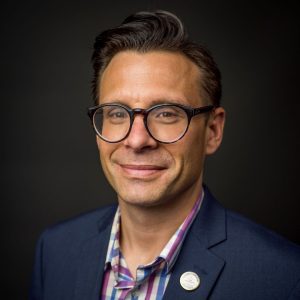What it meant to “live missionally” changed each time I transitioned to a different stage in life.
As a pastor for many years, each church I led emphasized mission education and mission involvement through Cooperative Program giving as well as strong support of the two annual missions offerings. When I became a seminary professor “living missionally” meant no longer being one or two steps removed from the front-line global mission fields. Now, I was training those who I had promoted supporting through our financial gifts and prayers. Being a teacher, mentor, and encourager to missionaries, chaplains, and church planters was how I lived missionally.
It is all about to change again.
A recent diagnosis of terminal cancer brings with it the decision to retire. What will missional living mean now? I’m no longer able to educate or call to missional living through preaching – I don’t have the energy. I may have some teaching opportunities as a retired professor but that leaves a lot of free time for the most part. With a compromised immune system and the ongoing threat of COVID-19, my wife and I have become online churchgoers; removing the opportunity for gathered service at church. I can no longer offer my handyman skills to help my neighbors out as I have in the past.
I may be sick, but I am not out; at least not yet. I am retiring, but my calling from God to missional living has not retired. How will this be expressed without the platforms I have had in the past? It occurs to me that I am now wrestling with the same issue that most members of the congregations I served did. How do I live missionally without a professional launching pad? What I do have is many interactions with healthcare workers. This is my new mission field.
No matter one’s vocation or stage of life is, “living missionally” has a universal and unchanging definition – living as kingdom citizens with our neighbors and actively sharing our faith story.
My first foray into my new mission field was a three-month stretch when I received twice-a-week visits to the infusion center. There were six RNs in the department serving the patients. I jotted down their names on my phone, and wrote a brief description of ways I could identify each with any tidbits of information I could gather; details such as vacation plans, length of employment, or things about family. Before I went in for treatment, I would review my notes so I could greet each one personally as I walked in. As my nurse of the day hooked me up to the infusion, I would be intentional about carrying on conversation about her career. I made sure to thank them for their care and to affirm that their job had meaning and value.
During one visit, my wife and I observed the RNs taking a stand-up break in a small hallway and enjoying a bite to eat. My wife suggested we bring packaged cookies or pound cake for them to enjoy. So we did. I could hear them ask who brought the goodies and each would come by to express their gratitude. My response was, “It’s just my way of saying thanks for your care and that you are appreciated.” I would continue to update my notes and use it as a prayer list the day before each treatment.
I noticed one RN was missing for a couple of weeks. When she returned, I asked if she had been on vacation. She revealed that she had a sister back east dying of cancer, and it was her turn among her siblings to spend time with their sister. I asked her for her sister’s name so I could pray for the two of them specifically. She teared up, whispered her sister’s name, said “thank you,” and hurried off. Each time I returned for a treatment I made sure to ask about her sister and remind her I was still praying. Would these efforts result in an opportunity to share the gospel, which is the goal of all missional efforts? Possibly. But it certainly does bring added value to service and personal affirmation to people. Such are kingdom values too. Fortunately, I am no longer receiving infusions, but I still keep my list just in case I return.
Something that does continue is monthly blood draws. I have never had the same phlebotomist twice, so it is a bit different than going in for treatments. I have developed a routine to be missional. Each time I sit down, they ask my name to confirm they have the right person. In response I ask their name since their name tag is often flipped over.
Then I say, “Hi John, are you nervous taking blood from me?”
They usually smile and say, “No. Are you nervous?”
I respond, “No, not at all. I appreciate your skill and care and want you to know what you do is important.”
After the blood draw is complete, I say, “Thanks, John. Later today, I’m going to spend some time in Christian prayer. Is there anything I can specifically pray for you about?” Sometimes I get a request, but more often I get a “No. I’m OK.” As I get up to leave, I respond, “That’s great.”
Again, will these efforts result in sharing the gospel? Maybe not, but hopefully someone has been affirmed and a positive Christian image has been demonstrated, if even for a moment.
Years ago, I had a conversation with a church member, who at a young age had to give up practicing medicine because of a debilitating heart condition. She was struggling with her identity as a Christian witness without her practice. She relayed a story of helping an elderly man navigate the confusing menu at a new food place called Chipotle. She said, “God revealed to me that my new role is to be kind.” At the time I thought to myself, “Well, that’s not much for the kingdom.”
Maybe now I’m beginning to understand a bit more about what she meant.
Read More

Hope in Suffering
Gateway student Matt Bodden is an evangelist who is ready to answer the question of suffering with the gospel.

The Gateway Journal of Theology Inaugural Issue
Read all new articles in the inaugural issue of The Gateway Journal of Theology.
Listen
Prophets | Daniel Part 2
Now with the historical portion of Daniel done, Dr. Wegner takes us through the visions of beasts and years. All these figures intending to show us something. What does it all tell us about God?

Theology and Missiology with Dr. Peter Lillback
Rev. Dr. Peter Lillback, president of Westminster Theological Seminary, PA, and founder of The Providence Forum, joins Dr. Hopkins to chat about the inclusion of young children during the main services in church, the religion and theology of George Washington, and the

Watch

Jonathan Edwards and the Asbury Revival
Chris Chun and Chris Woznicki discuss the signs of true revival, signs of the work of the Holy Spirit, and why it is important to critically assess the characteristics of revival in a spirit of charity.

Jonathan Edwards and the Baptists | Douglas Sweeney, Nathan Finn and Chris Chun
Dr. Douglas Sweeney and Dr. Nathan Finn joined Dr. Chris Chun for a panel discussion on Jonathan Edwards, recorded live at the SBC Annual Meeting in Anaheim.




